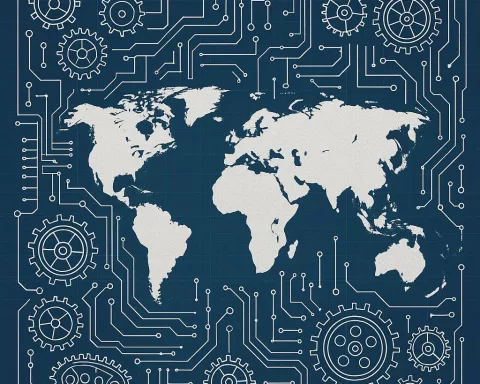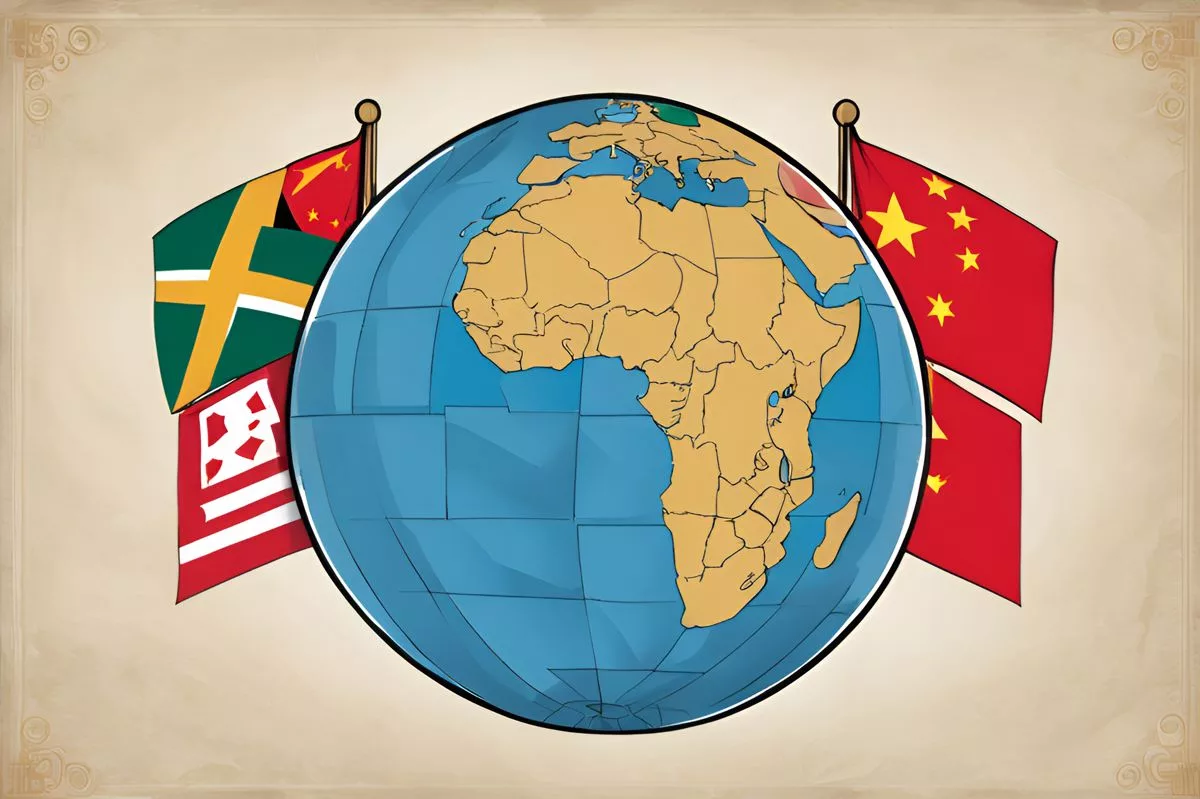The Department for Communications and Digital Technologies is excitedly anticipating a comprehensive briefing to the Portfolio Committee on Communications and Digital Technologies. The briefing will focus on financial outcomes and reporting for the third and fourth quarters of the 2023/24 fiscal year and will be held virtually. The meeting will cover exciting advancements in AI, legislative developments, and operational realignments. The event highlights South Africa’s commitment to progress, technological innovation, and transparency.
Anticipating a Major Briefing in the Department for Communications and Digital Technologies. The Department of Communications and Digital Technologies is eagerly anticipating a comprehensive briefing to the Portfolio Committee on Communications and Digital Technologies. The briefing will focus on financial outcomes and reporting for the third and fourth quarters of the 2023/24 fiscal year. The meeting will be held virtually to encourage participation from interested parties.
As the clock ticked closer to September 10, 2024, a sense of eager expectation enveloped the Department of Communications and Digital Technologies (DCDT) as well as the Government Communication and Information System and all their associated entities. The main event on the docket was a comprehensive briefing to the Portfolio Committee on Communications and Digital Technologies, focusing on financial outcomes and reporting for the third and fourth quarters of the 2023/24 fiscal year.
The DCDT, steward of an impressive R3.5 billion budget for the fiscal year being evaluated, had set aside R1.6 billion specifically for the advancement and oversight of ICT enterprises and state-owned enterprises. This generous allocation underscored the department’s unyielding dedication to the growth and nurturing of the ICT sector, a core component of the nation’s digital economy.
The Launch of Sophisticated AI Centres and Legislative Developments
One notable aspect of the upcoming report was the inauguration of two advanced artificial intelligence (AI) centres of excellence, earmarked for inclusion within the Artificial Intelligence Institute of South Africa. The blending of these centres marked a considerable stride towards enhancing the nation’s AI competencies, suggesting a future wherein South Africa could align with the world’s top-ranking nations in AI expertise.
Also in the spotlight were the Audio and Audio-Visual Content Services and Online Safety Bill and the Electronic Communications Amendment Bill, two legislative drafts awaiting Cabinet endorsement. These bills, innovatively tailored to protect online interactions and regulate electronic communications, pointed towards a digitally adept South Africa that balances technological evolution with user protection.
Operational Realignments and the Role of the Auditor-General
The Portfolio Committee’s expectations from the DCDT, however, did not stop at AI advancements and legislative developments. They were equally excited about the department’s evaluation reports regarding the dissolution of the Universal Service and Access Agency of South Africa and the repurposing of the State Information Technology Agency (SITA). These reports had the potential to offer insights into the overhaul of these entities to better cater to the country’s ICT requirements.
Furthermore, an exciting addition to the day’s agenda was the briefing by the Auditor-General of South Africa. This interaction with the Auditor-General was a clear testament to the principle of transparency that forms the cornerstone of the department’s financial practices.
The Virtual Meeting and the Democratic Essence of Parliament
The meeting was organised to happen virtually, embracing the widely accepted mode of communication in a world recovering from a pandemic. A Zoom link, symbolising an open invitation to transparency, was publicly shared to encourage the participation of any interested parties.
As the DCDT’s quarterly report narratives unfolded, an important piece of information highlighted the democratic core of the Parliament. The entitlement of all political parties represented in the Parliament to public funds, proportionate to their seat holdings, for their political activities was noted. This practice underlines the commitment to participatory democracy wherein all voices are represented, and resources are distributed fairly.
In conclusion, it’s crucial to note that any individual can participate in a Parliament tour, watch a debate, or access the necessary contact details. Such open access underlines the notion that Parliament is a communal space where every citizen can learn, debate, and contribute to the nation’s trajectory.
When examined as a whole, these proceedings paint a detailed picture of South Africa’s democratic landscape. They reflect a dedication to progress, technological innovation, legislative advancement, plus an overriding commitment to transparency and inclusiveness. The synergistic work of different entities towards the country’s digital goals is showcased, providing a peek into the heart of South African governance and its devotion to crafting a digitally empowered future for all its citizens.
1. What is the Department for Communications and Digital Technologies anticipating?
The Department for Communications and Digital Technologies is anticipating a comprehensive briefing to the Portfolio Committee on Communications and Digital Technologies.
2. What will the briefing focus on?
The briefing will focus on financial outcomes and reporting for the third and fourth quarters of the 2023/24 fiscal year.
3. Will the meeting be held virtually?
Yes, the meeting will be held virtually to encourage participation from interested parties.
4. What exciting advancements will the meeting cover?
The meeting will cover exciting advancements in AI, legislative developments, and operational realignments.
5. What bills will be discussed during the meeting?
The Audio and Audio-Visual Content Services and Online Safety Bill and the Electronic Communications Amendment Bill will be discussed during the meeting.
6. Will the public have access to the meeting?
Yes, the meeting is publicly accessible through a Zoom link, and the Parliament is committed to open access and inclusiveness for all citizens.












